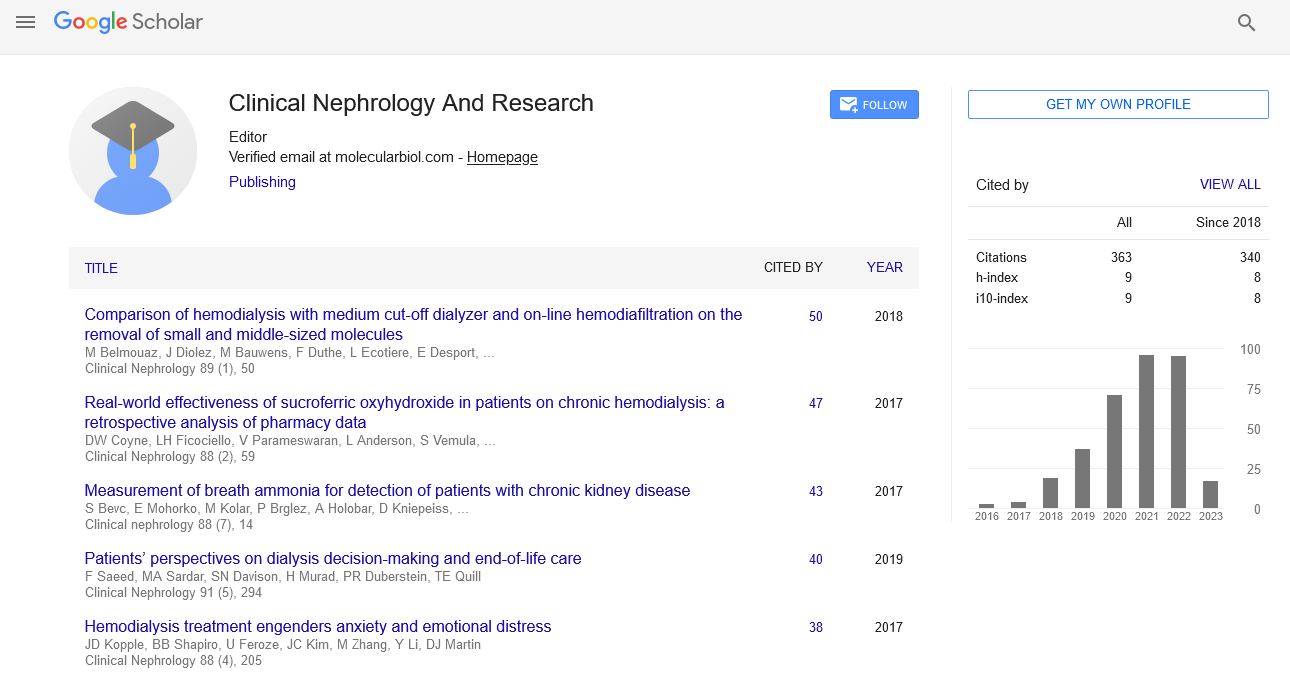
Sign up for email alert when new content gets added: Sign up
Abstract
Role of immunology laboratory in diagnosing renal diseases
Author(s): Sabiha Anis*Immune mediated injuries comprise a major bulk of renal disorders that mostly manifest as acute or chronic glomerulonephritides. Besides initial investigations for renal disorders, diagnosis of immune mediated renal diseases requires a battery of immunological tests and renal histopathology. The laboratory tests include anti-nuclear antibodies (ANA) followed by anti-double stranded deoxyribonucleic acid antibodies (antidsDNA) and/or anti-extractable nuclear antigens (anti-ENA), complement levels (C3, C4, factor H), rheumatoid factor (RF), C reactive proteins (CRP), anti-streptococcal antibodies including anti streptolysin-O titer (ASOT) and anti-deoxyribonuclease B (anti-DNAse B), anti-neutrophilcytoplasmic antibodies (ANCA), anti-glomerular-basement membrane antibodies (anti-GBM), cryoglobulins detection, anti-phospholipid antibodies, nephritic factor, anti-phospholipase A2 receptor antibodies (anti-PLA2R) etc. The correct interpretation of these tests by an immunologist in collaboration with histopathologists and nephrologists is the key to an accurate diagnosis and successful management of patients with renal diseases. A brief overview of the tests from the immunologist’s perspectives for the diagnosis and monitoring of renal disorders is given in this review.
Full-Text | PDF




